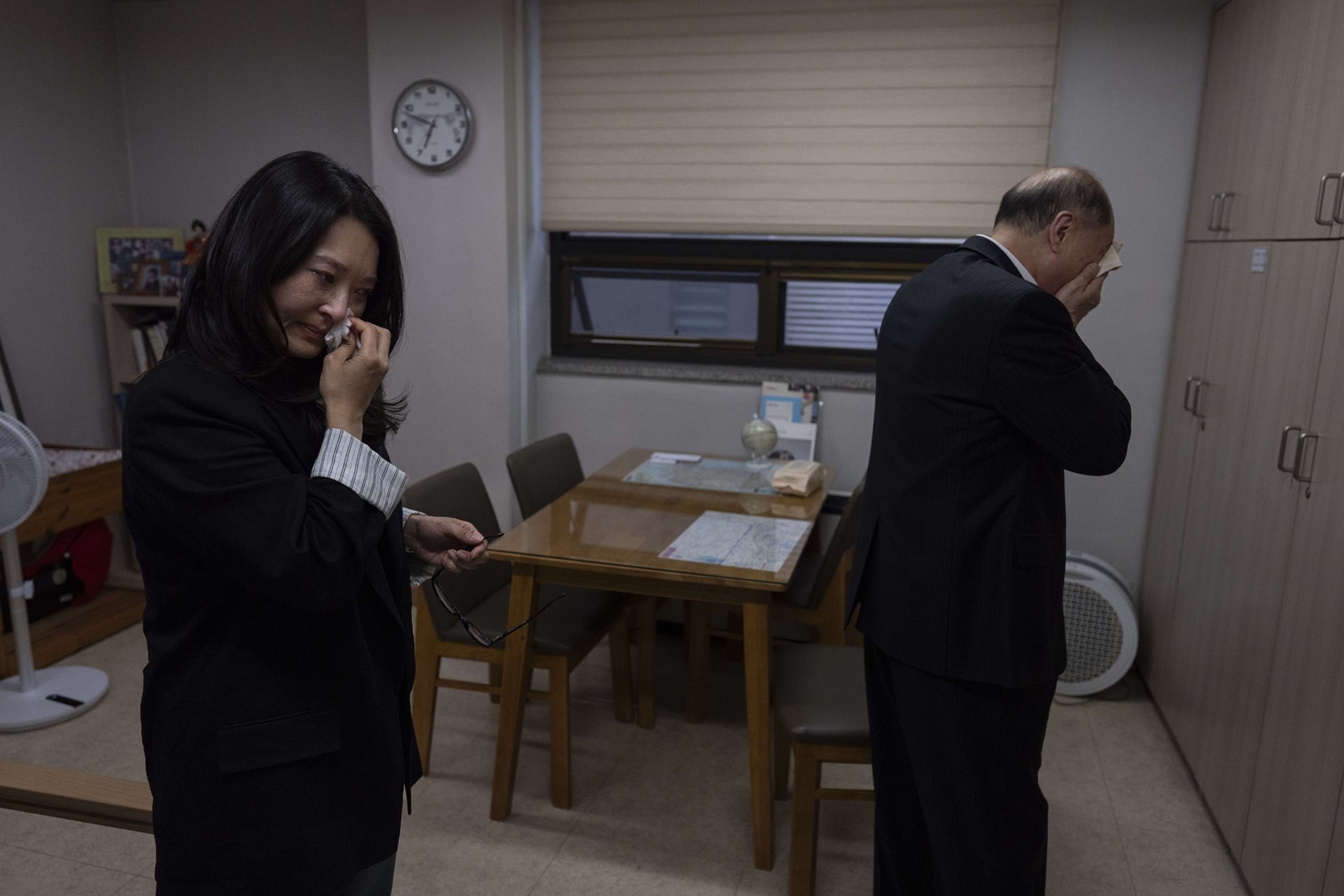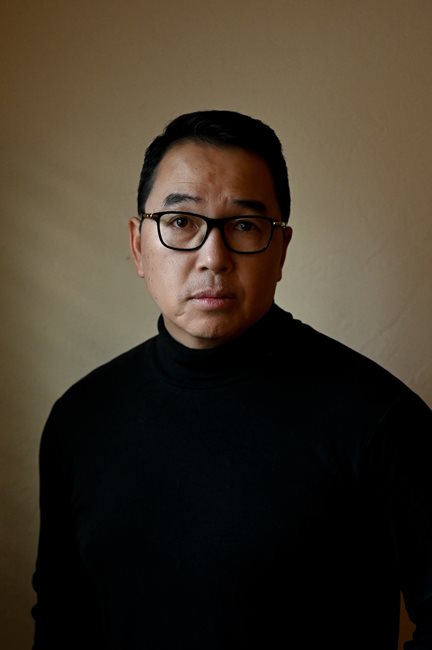Nicole Motta (left) and her birth father Jang Dae-chang wipe away tears after an emotional reunion, in Seoul, South Korea, some 40 years after they were separated.
Nicole’s documents say that she was adopted from a Korean orphanage in 1985, after being in the care of neighbors and relatives. Her birth father, Dae-chang, was away for work for long stretches and his wife struggled to raise three children alone. Dae-chang says he told Nicole that he discovered she was gone when he came back from one such trip, and when he tried to find what had happened to her, learned that relatives had given her away. He hadn’t spoken to the relatives since, he said, and never knew she was adopted abroad.
Some 200,000 Korean children have been adopted into the US since the 1950s, when war orphans were found homes overseas following the devastation of WWII and the Korean War. Later, such intercountry adoptions surged, but were inadequately governed by international law.
It wasn’t until 1995 that a Hague Convention came into force to regulate the adoption industry and protect children from trafficking. The convention wasn’t implemented in the US until 2008.
Children like Nicole grew up searching for their roots, but discovered their life story is not what they thought.In 2024, an investigation by Associated Press (AP) into more than 80 adoptees uncovered evidence that challenged the widely held view of “abandoned” children being put up for adoption in the US. The AP investigation revealed cases of falsification of paperwork, agencies using coercion to acquire children from parents, occasional complicity by both US and Korean governments, and switching of identities – children who couldn’t travel (for example, due to illness) simply being replaced by others.
A Truth and Reconciliation Commission began working on the adoption issue in Korea in 2022. By 2025, some 360 adoptees had asked the commission to investigate the circumstances of their adoptions. The Korean adoption scandal, together with cases relating to Vietnam, Ethiopia, and other countries, prompted review of policies worldwide. Switzerland, the Netherlands, Denmark, Norway, the UK, and Belgium are among countries that are reviewing their policies or have now banned international adoption.
Are you a photographer and/or passionate about press freedom? Sign up for our newsletter to stay updated on our annual contest and to hear about exhibitions near you.

